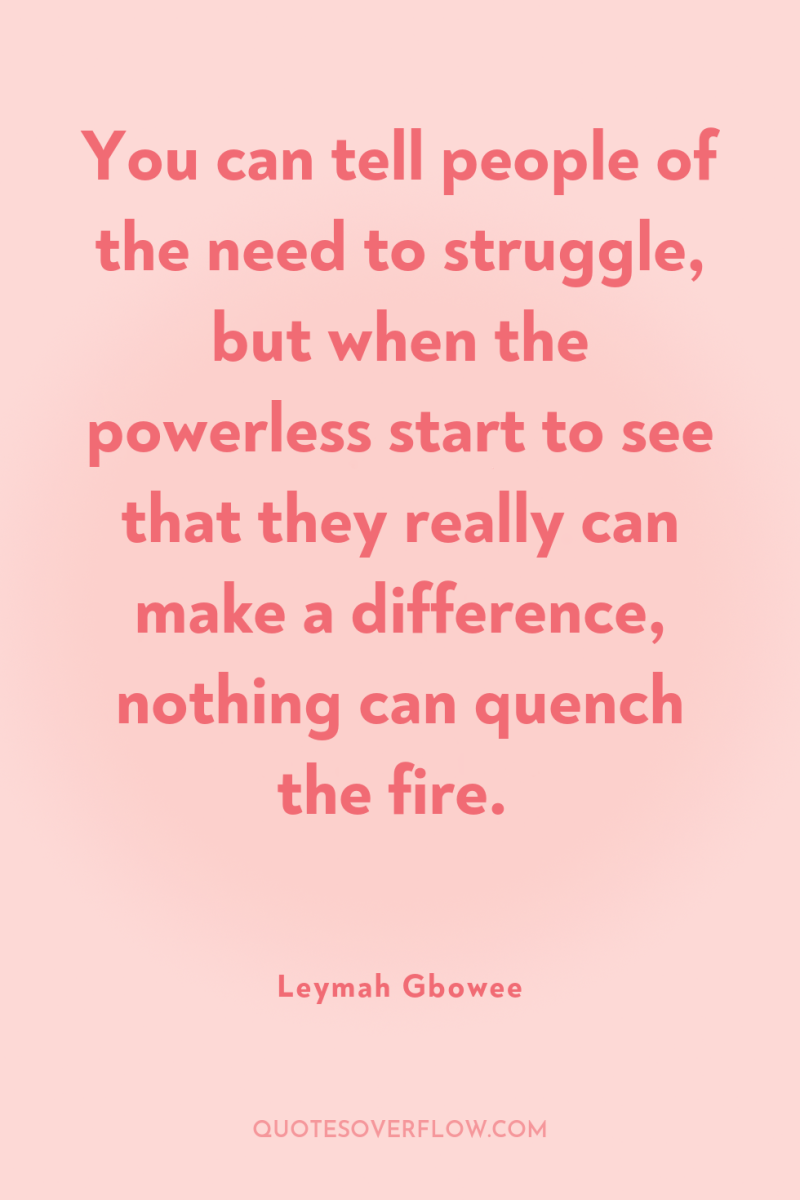
1
You can tell people of the need to struggle, but when the powerless start to see that they really can make a difference, nothing can quench the fire.Leymah Gbowee
2
The person who hurt you--who raped you or killed your family--is also here. If you are still angry at that person, if you haven't been able to forgive, you are chained to him. Everyone could feel the emotional truth of that: When someone offends you and you haven't let go, every time you see him, you grow breathless or your heart skips a beat. If the trauma was really severe, you dream of revenge. Above you, is the Mountain of Peace and Prosperity where we all want to go. But when you try to climb that hill, the person you haven't forgiven weighs you down. It's a personal choice whether or not to let go. No one can tell you how long to mourn a death or rage over a rape. But you can't move forward until you break that chain.Leymah Gbowee
3
Organizations like the UN do a lot of good, but there are certain basic realities they never seem to grasp. .Maybe the most important truth that eludes these organizations is that it's insulting when outsiders come in and tell a traumatized people what it will take for them to heal. You cannot go to another country and make a plan for it. The cultural context is so different from what you know that you will not understand much of what you see. I would never come to the US and claim to understand what's going on, even in the African American culture. People who have lived through a terrible conflict may be hungry and desperate, but they are not stupid. They often have very good ideas about how peace can evolve, and they need to be asked. That includes women. Most especially women. .To outsiders like the UN, these soldiers were a problem to be managed. But they were our children.Leymah Gbowee
4
Most of the institutions that come in to offer help after disaster don't have the resources to provide concrete help. Donor communities invest billions funding peace talks and disarmament. Then they stop. The most important part of postwar help is missing: providing basic social services to people. Not having those resources might have been a reason men went to war in the first place; they crossed a border and joined an armed group because they didn't have jobs. In Liberia right now, there are hundreds of thousands of unemployed young people, and they're ready-made mercenaries for wars in West Africa. You'd think the international community would be sensible enough to know they should work to change this. But they aren't.Leymah Gbowee